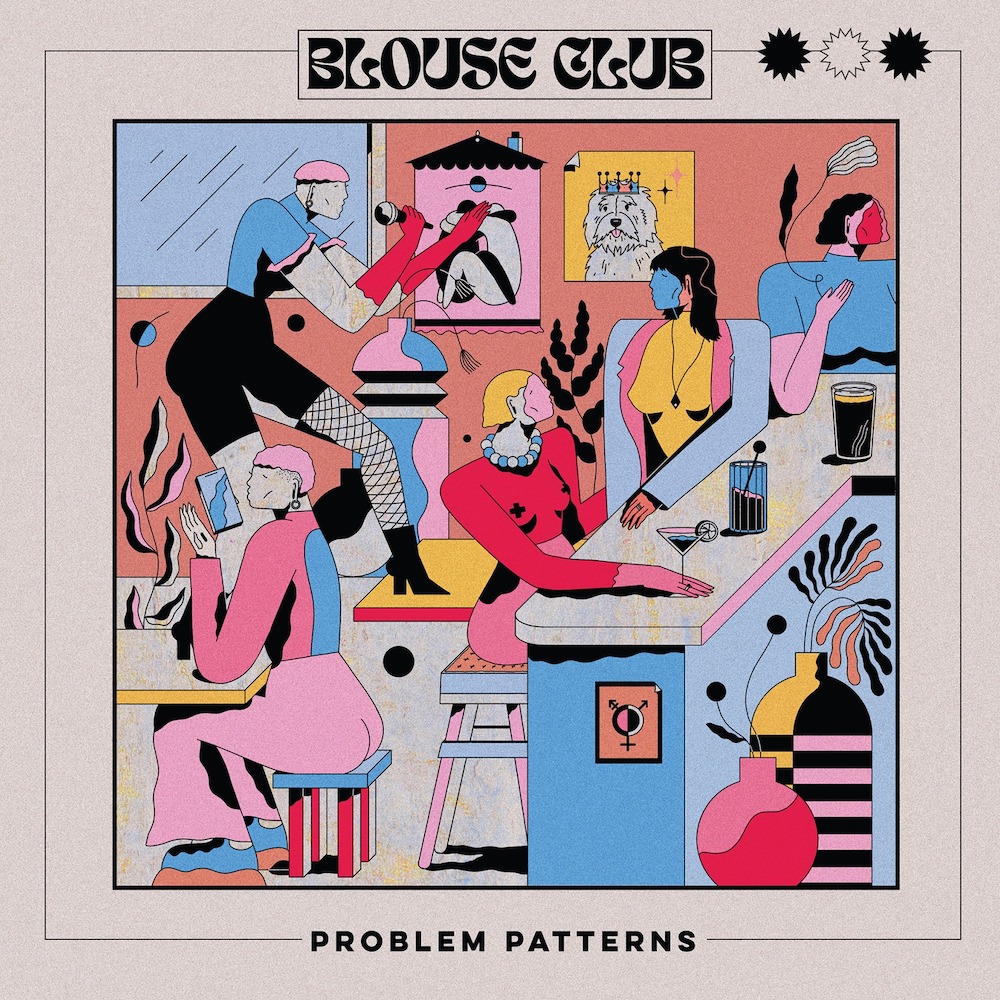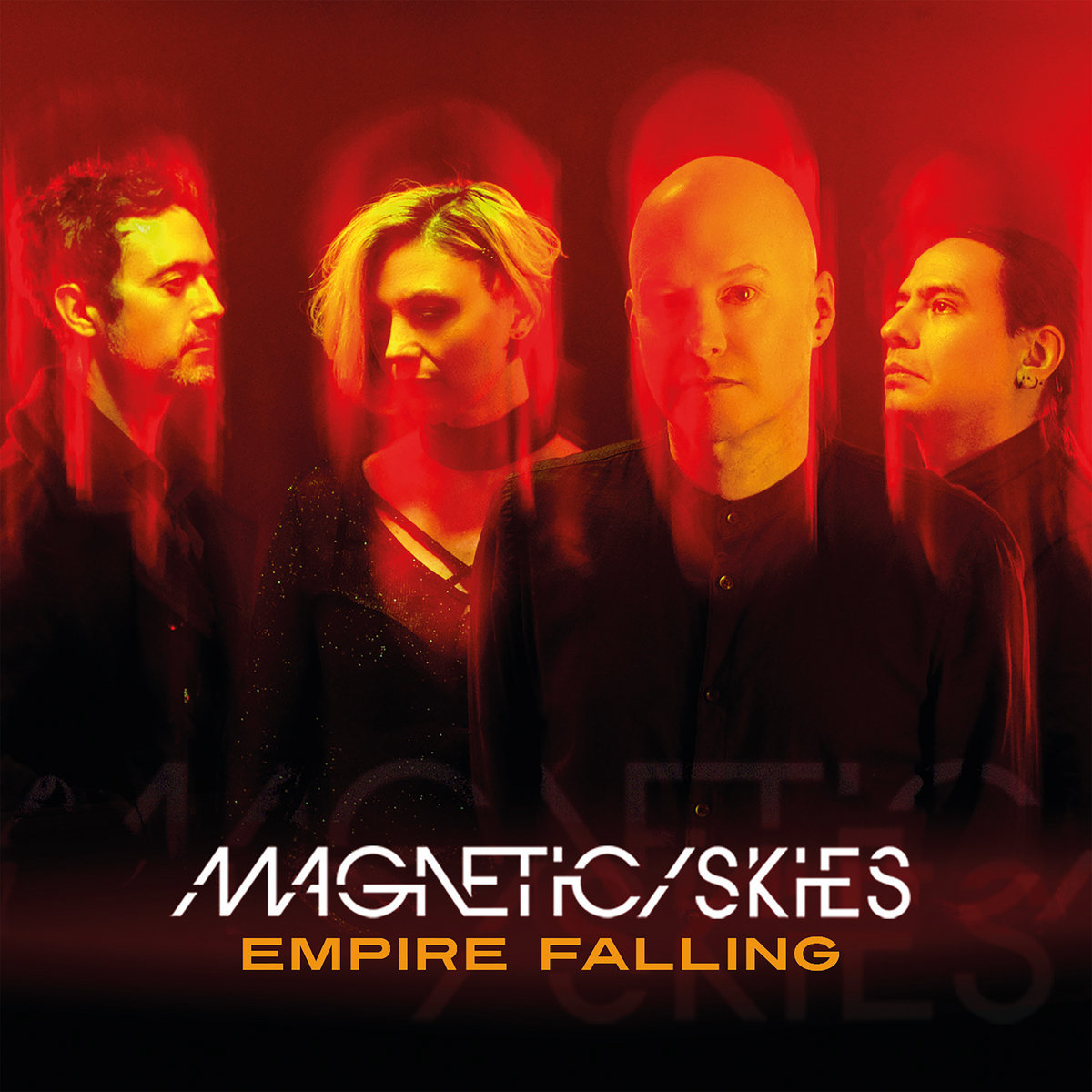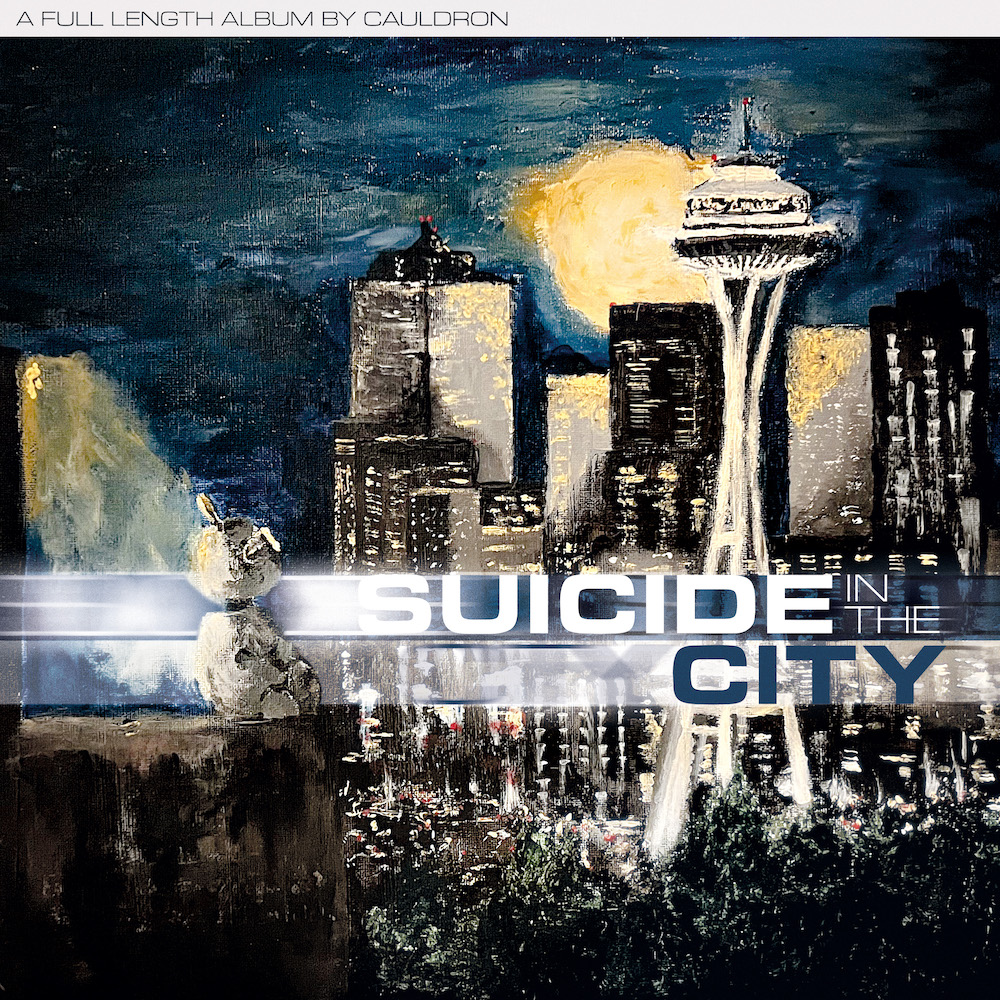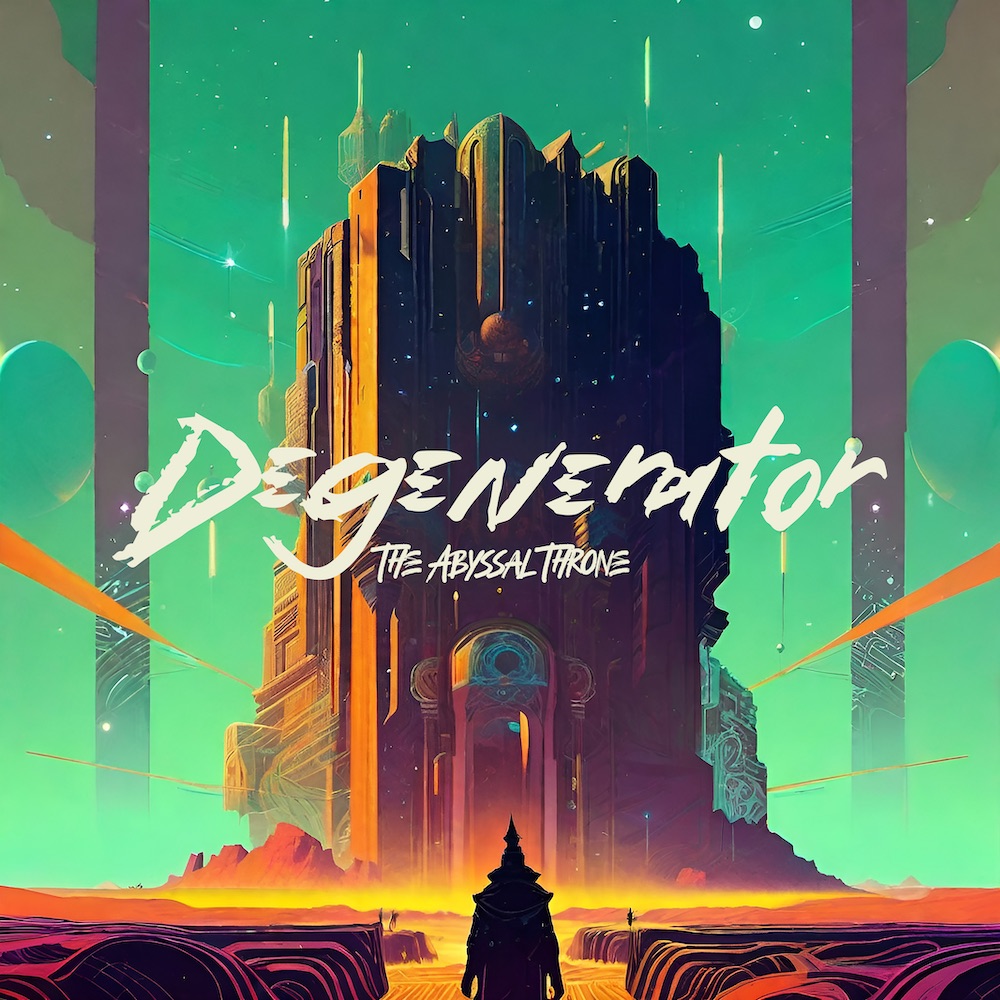The DIY feminist queerpunk quartet Problem Patterns have already been praised by punk icons Kathleen Hanns (Le Tigre, Bikini Kill) and Henry Rollins (Black Flag) as one of the most exciting new punk bands on the planet.
On their endorsements, Problem Patters say,
It’s quite a surreal thing to even hear people like them say our name out loud. These are figureheads that we’ve heard of our entire lives, people who have influenced countless other artists and multiple generations at this point. The fact that they have shown us support is incredibly gratifying. Sometimes the imposter syndrome tries to trickle in but we all just think about people like them who have recognised us and enjoy what we do. It is a gift we do not take lightly and we are so grateful to them.
Their debut album, Blouse Club, proves why the recognition is more than worthy. With their messages of inclusivity and radical activism, Problem Patterns and their music are needed now more than ever as a voice for those without.


The Belfast based band came together in 2018 after Alanah Smith, Bethany Crooks, Beverley Boal, and Ciara King joined forces to shout and scream music that was heavy, tongue in cheek, but mostly inclusive, hopeful, and damn good fun.
The band says this of their roots,
Growing up here and experiencing firsthand the strength and sense of community that the people have is inspiring. Even through the toughest times we are a resilient people and that is ingrained throughout generations. We also have this amazing kindness and want to help others, and that’s heavily reflected in the music scene. Folks are always lending each other equipment, sharing funding form tips, sharing each other’s songs on social media. It’s really quite lovely and so unique of itself.
Perhaps the most interesting part of the band is the democracy within. Maybe more controversial than not having a ‘side of the bed’, Problem Patterns will swap roles and instruments to best vocalise their message.
On their dynamics, Alanah says,
We made a conscious decision to remove the traditional format of having a front person, as we wanted everyone to have a voice. A few of us wanted to be ‘lead vocalist’ originally and then we decided it would be way more fun for all of us if we just swapped roles. It also keeps things more interesting, especially if someone picks up an instrument they’re not as accustomed to. It keeps us constantly learning and trying to better ourselves. We all have very different backgrounds and experiences, and we think it’s vital to the band that everybody is able to express themselves equally.
Songs like “Who Do We Not Save” serve as a pointed commentary on Tory funding policy and their attempts to privatise the NHS. While songs like “Letter of Resignation” speak of LGBTQIA+ community joy despite being attacked from all sides.
On the track, “Lesbo 3000”, Bethany says,
‘Lesbo 3000’ was written partly out of frustration and also to reclaim and have ownership over my sexuality. The frustration is that lesbianism is consistently invalidated, we’re told that we just haven’t ‘met the right man’ yet or that some random man in a bar has a magic appendage in his trousers that will completely negate your attraction to women. The reality is that homophobic attacks are becoming more and more consistent with right wing social media emboldening bigots, while ‘lesbian’ remains one of the top search topics on all porn websites. (Mostly) men think that lesbians exist for their sexual gratification, but if they see two women holding hands they go absolutely berserk.
Bethany further adds,
I also thought it was important to reclaim the slur ‘dyke’. I’ve been called a dyke multiple times by homophobes who want to hurt me, but if I can reclaim that word it completely takes the power out of it. Yes I am a dyke. And that feels really powerful to say.
For me, one of two stand out tracks is “Poverty Tourist”. With a scorching bass line, the song is loud, angry, infectious, and a down right banger.
Alanah says this on the track,
We’re a working class band and there are experiences that are very unique to us which we have bonded over. It’s incredibly frustrating to see those struggles co-opted by folks who have never had to worry about money. The kind of people who will dig around charity shops to ‘curate’ bits for their Etsy store where they will sell these items at 10x the price. Charity shops exist to serve the community and there are people that depend on them because there are no other options. It’s the rich kids moving into impoverished areas to make themselves sound more interesting, driving up the rent and gentrifying the area. This sort of romanticisation of the poor is very prevalent in the music scene, especially in bands (and industry types) who align a working class background with being perceived as more authentic. People dress up and change their accent for personal gain only, but as Jarvis Cocker once said, ‘If you called your dad he could stop this all’—and of course, he also said, ‘Everybody hates a tourist.’ It’s cosplay, it’s gross, and it’s always obvious when someone is doing this.
The second stand out track, and perhaps my favourite song on Blouse Club is “Picture of Health”.
Fierce, fast, and ferocious with a powerful message of being better to oneself, the song is a wonderful message on being kind to yourself and not believing the lies the mind may tell you.
The band says,
We make music for ourselves and each other first. We’re trying to build a positive space from subjects that can otherwise be very difficult to face. We want to bring some hope and joy to those who may need it the most. We want to strike fear into those who seek to harm the vulnerable. We want to annoy anyone who thinks we aren’t good enough. At the end of the day, we are doing this for ourselves, but we are happy to involve anyone who wants to fight the good fight.
Striking fear and fighting the good fight is exactly what Blouse Club has accomplished for Problem Patterns. Their debut album is filled with much needed criticism of society, but equally filled with empowering messages and hope.
MUST LISTEN TRACKS: “Advertising Services”, “Lesbo 3000”, “Who We Do Not Save”, “Poverty Tourist”, “Letter of Resignation”, “Picture of Health”, “Domestic Bliss”
FAVOURITE TRACKS: “Advertising Services”, “A History of Bad Men Part II”, “Poverty Tourist”, “Letter of Resignation”, “Picture of Health”, “Domestic Bliss”



